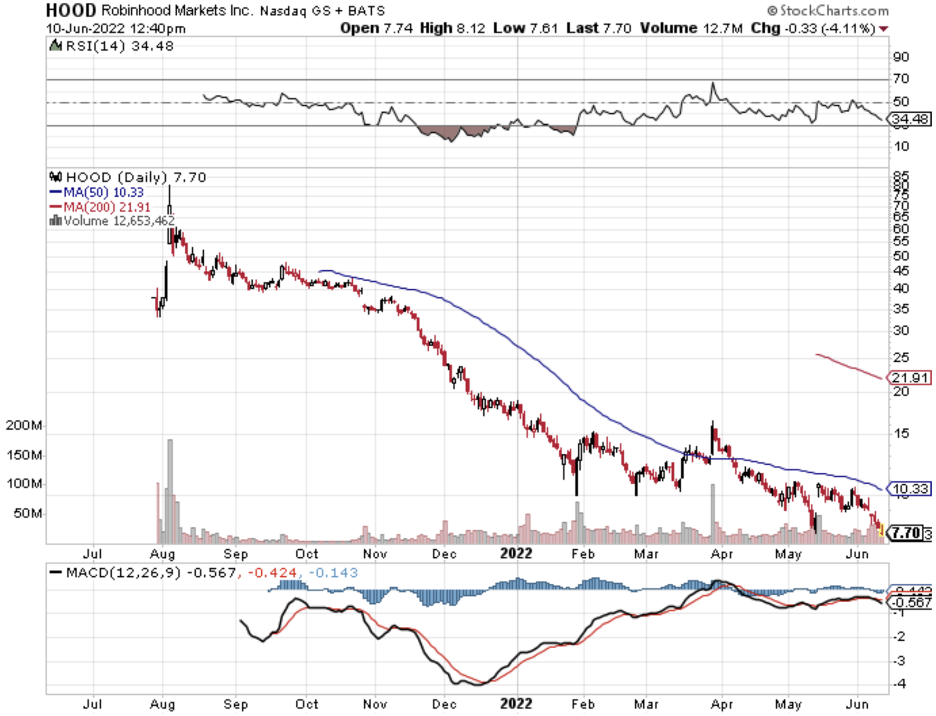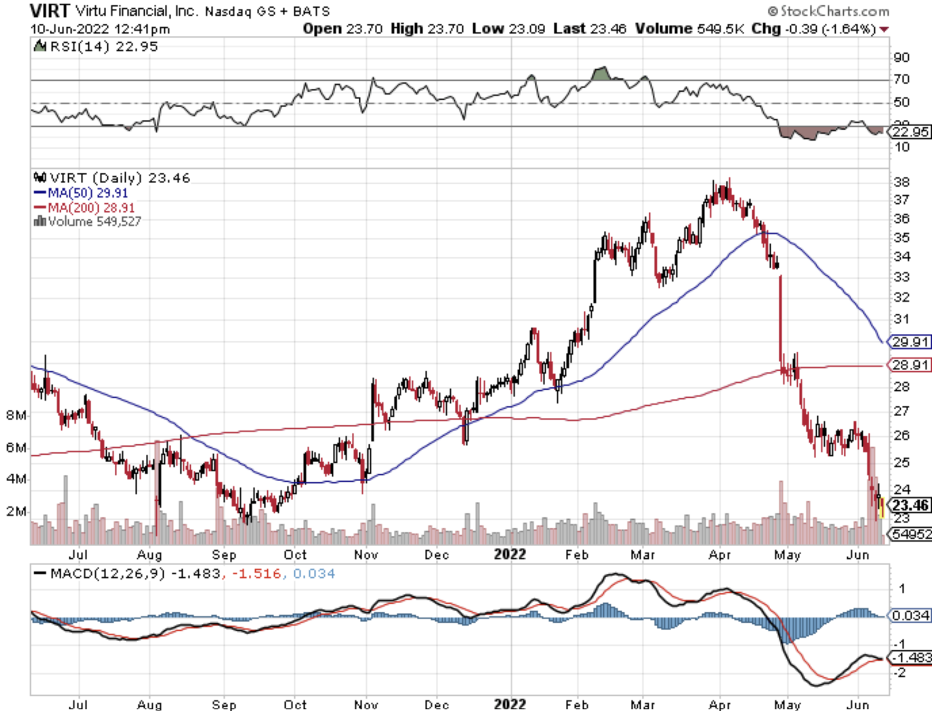Stockbrokers Signaling Big Changes Ahead
Virtu Financial, Inc. (VIRT), Robinhood Markets, Inc. (HOOD), and Citadel Securities will need to change business models after the SEC plans unprecedented market changes so that high-frequency trading companies cannot front-run retail orders anymore.
Citadel is the only one of these 3 that is not public and for the other 2, heavy short interest will attract these stock names.
It’s about time.
The regulation revolves around retail investors finally getting a fair order for their market stock orders.
Market orders aren’t specified at a certain price and because of that, companies front-run these orders and skim a few pennies off their orders, before finally selling them to the end retail investor.
Crazily enough, this has been legal for many years, which is why the CEO of Citadel Ken Griffin can buy a new $100 million property every year.
Under current rules, brokers must perform “reasonable diligence” to determine the likely best market for executing a trade.
Robinhood Markets essentially sell historical retail trade data to Citadel and Virtu, better known as Payment for order flow (PFOF).
This is the juice that these HFT firms use to front-run the retail traders by deploying their professional algorithms.
Nobody in the trading community thought the SEC would get their heads around and do something about this egregious loophole in trading.
I need to give credit where credit is due, and diverting market trades into an auction where the actual best price is procured for the retail trader finally gives power back to the little man after getting fleeced for so many years.
CEO of Virtu Douglas Cifu and Ken Griffin must now expose their capital to risk if they wish to make money in markets.
What a thought!
The zero-risk era of front-running trading is coming to a close meaning companies like Robinhood are worth zero since their profits come from PFOF.
HOOD is worth zero because they don’t charge traders for trading fees because they package all revenue in the form of PFOF.
If that is now worth zero, then do the math: the company is also worth nothing.
This would also take down one of the biggest crypto-based companies whose claim to fame was being the rock-solid broker for the crypto traders.
Well, it’s hard to make money when your customer goes bankrupt, which is exactly what happened to crypto traders since November 2021.
Now, imagine charging for trades and competing with real brokers in the vanilla game of stock broking and the future looks quite daunting.
On the plus side, VIRT and Citadel can roll their mass profits into risk-based trading strategies. However, that could lose money, which they aren’t used to.
This is still only a proposal and not legislation yet, so the dust has yet to settle.
However, if this does come to pass, expect trading commissions to come back in full and no more free trading, because stockbrokers need some way to make money if they can’t sell your trading data.
The gamification of trading by HOOD has alerted the SEC to tighten down the hatches; and this has been coming for quite a time.
The SEC has proven in the past that when there is a red target on one’s back, they usually don’t just give a pass.
As a response to the SEC proposal, HFT brokers are pedal to the metal with lobbyists and government pressure to block this proposal.
If this proposal goes through in some potent form, expect HOOD and VIRT to be down big and for Ken Griffin to purchase less $100 million mansions.





